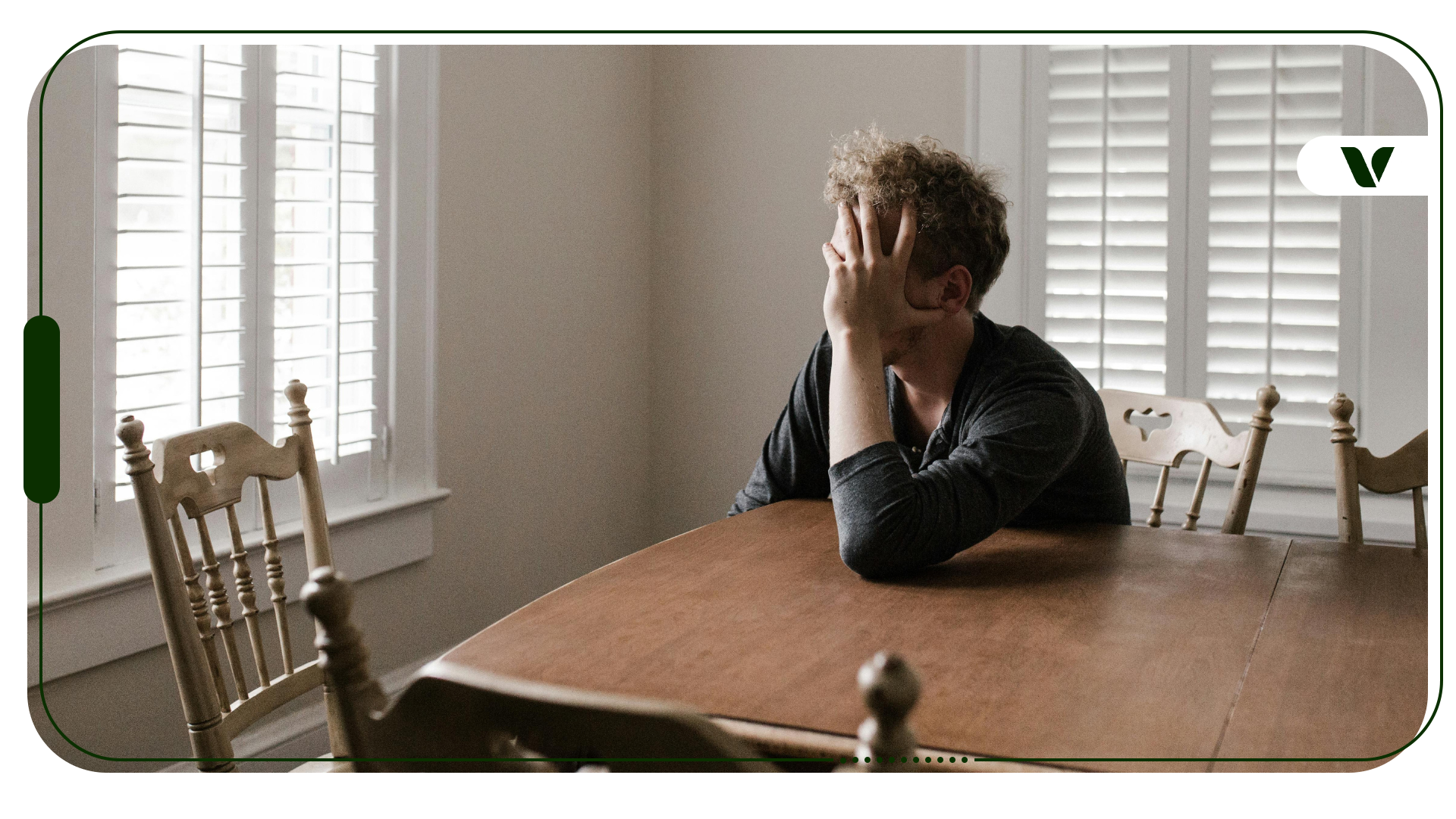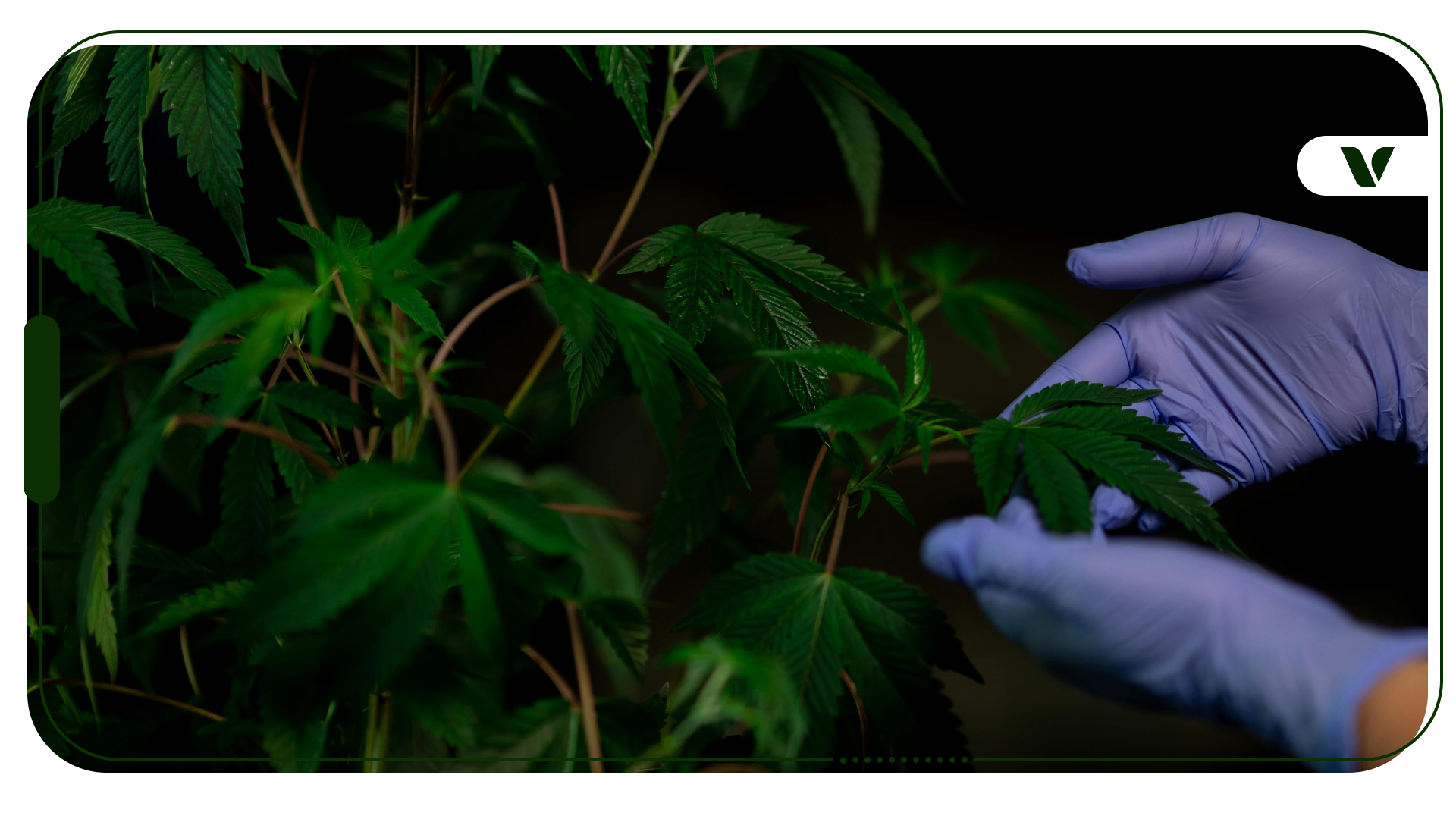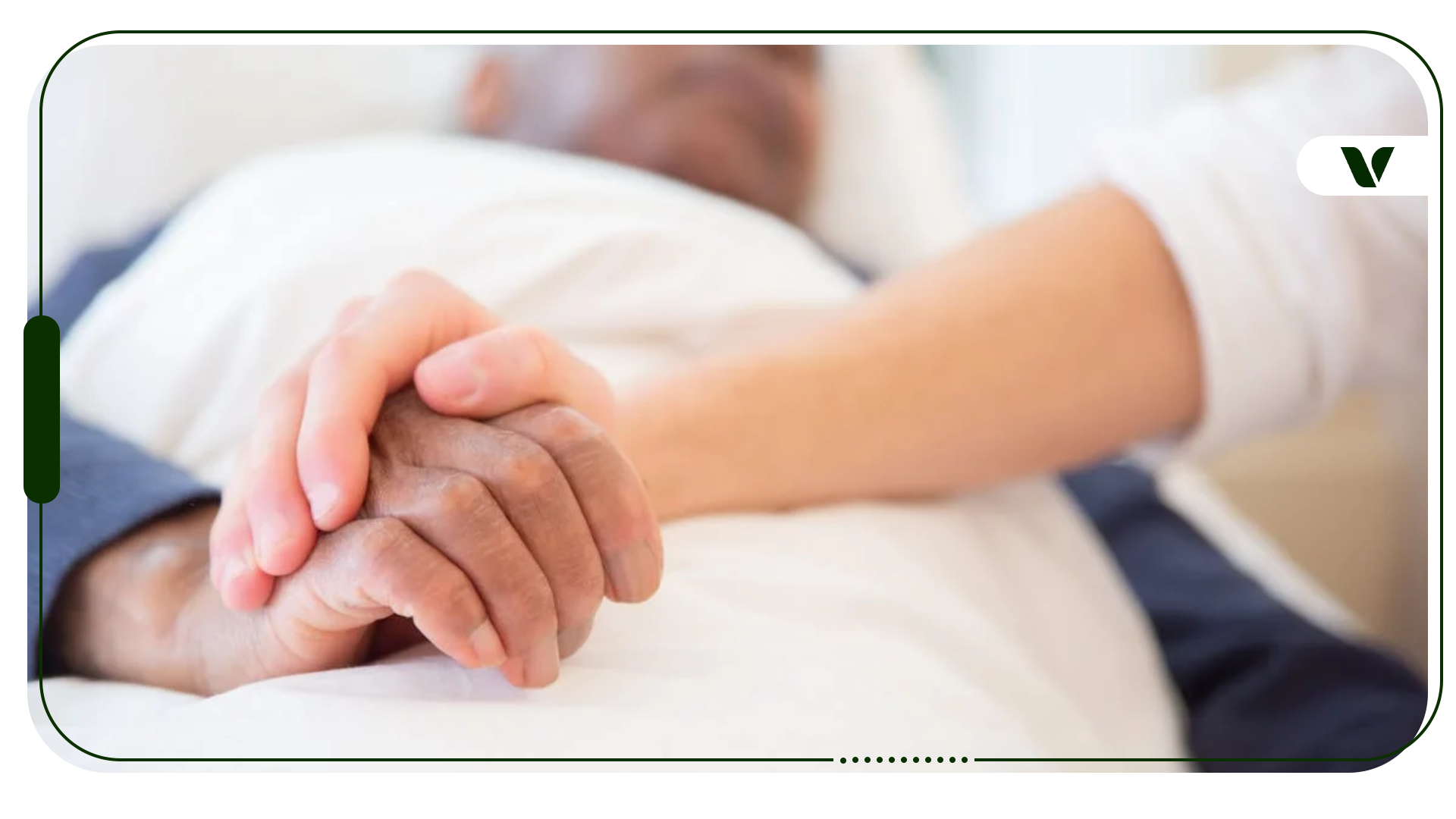One of the many benefits of cannabis is that it can help reduce anxiety. However, certain strains can worsen anxiety — especially when consumed in high doses. With the proper dosage, strain, and knowledge of these anxiety triggers, cannabis can offer stress relief without unwanted anxiety-triggering effects.
In this guide, you’ll gain a better understanding of how anxiety affects the body, anxiety symptoms to be aware of, popular anxiety-triggering strains to avoid, and the methods of consuming cannabis if you’re managing anxiety.
What is Anxiety, and What Triggers It?
Anxiety is a natural human emotion characterized by feelings of fear, worry, unease, and even causes some physical symptoms in response to perceived threats or stressful situations. But, as a pathological condition, it can also arise out of the blue.
Common anxiety triggers include:
- Situations: Events like public speaking can trigger anxiety.
- Negative Thoughts: Self-doubt or catastrophic thinking can make anxiety worse.
- Physical Symptoms: Symptoms like a racing heart or shortness of breath can trigger more anxiety.
- Environmental Factors: Exposure to trauma or violence can worsen anxiety.
- Medications: Certain medications can increase anxiety.
- Caffeine: Caffeine can trigger or worsen anxiety.
- Relationship Problems: Conflicts with loved ones can heighten anxiety.
- Financial Concerns: Money worries can trigger anxiety.
- Health Concerns: Fears about health or a loved one’s health can lead to anxiety.
- Social Events: Social situations can trigger anxiety, especially for those with social anxiety.
- Sleep Issues: Poor or interrupted sleep can contribute to anxiety.
What Are the Types of Anxiety Disorders?
While anxiety is a natural reaction in the body, pathological or long-term anxiety can lead to other health concerns, both mental and physical. The long-term effects of anxiety can include:
Chronic Anxiety:
Ongoing or excessive anxiety can cause long-term health problems, such as cardiovascular issues, digestive problems, and immune system dysfunction.
Anxiety Disorders:
When anxiety becomes overwhelming and disrupts daily life, it can develop into an anxiety disorder. Anxiety disorders also carry a higher risk of developing other serious mental health conditions like depression, insomnia, substance abuse, and more.
Common anxiety disorders include:
- Generalized Anxiety Disorder (GAD): Involves excessive, uncontrollable worry about various aspects of daily life.
- Panic Disorder: Causes sudden, recurrent panic attacks—intense periods of fear and discomfort.
- Social Anxiety Disorder: This manifests as a persistent fear of social situations due to concerns about being judged or embarrassed.
- Specific Phobias: Induce intense fear of particular objects or situations, leading to avoidance behavior.
- Agoraphobia: Involves fear of situations where escape might be challenging or help unavailable, often leading individuals to avoid certain places or situations.
- Separation Anxiety Disorder: Presents as excessive fear or anxiety about separation from attachment figures, beyond what’s typical for one’s developmental stage.
- Selective Mutism: A consistent inability to speak in specific social situations despite speaking in other settings.
What Are the Symptoms of Anxiety?
When anxiety kicks in, it activates the body’s natural fight-or-flight response and the autonomic nervous system, particularly the sympathetic nervous system. The physical and emotional reactions to anxiety are a way our bodies try to keep us safe and handle a perceived threat — whether real or perceived.
Anxiety causes physical and emotional changes such as:
- Rapid heartbeat or palpitations
- Sweating
- Tremors or shaking
- Muscle tension
- Shortness of breath
- Fatigue
- Gastrointestinal issues (e.g., nausea, diarrhea)
- Headaches
- Difficulty sleeping
- Dizziness or lightheadedness
- Chest pain or tightness
- Numbness or tingling
- Confusion or disorientation
- Difficulty focusing on tasks
Performance anxiety is an intense fear or concern about one’s ability to perform a specific task or skill, often in normal situations like public speaking, sports, work, stage performances, driving, test taking, engaging in sex, etc. Oftentimes, this leads to physical symptoms and emotional distress that can then cause a poor performance.
The three most common causes of performance anxiety include:
- Fear of Failure: Worrying about mistakes or adverse outcomes can cause performance anxiety.
- Unrealistic Expectations: Setting overly high standards or expecting perfection creates unnecessary pressure and anxiety, leaving little room for errors.
- Lack of Confidence: Doubting one’s skills or abilities can increase performance anxiety, especially in unfamiliar or challenging situations.
How Marijuana Can Help with Anxiety
Anxiety is a familiar feeling for many people, but for some, it can become overwhelming. While prescription medications might help, they often cause unwanted side effects or can be expensive.
Cannabis offers a natural and effective alternative in some cases. Certain marijuana strains, both recreational and medical, often create a euphoric feeling, boost sociability, and reduce anxiety.
The non-impairing cannabis compound cannabidiol (CBD) is primarily known for its potential to help manage anxiety. CBD interacts with the endocannabinoid system (ECS), affecting neurotransmitters, enzymes, and receptors linked to stress and anxiety. Cumulative clinical and preclinical research suggests CBD has may have anxiolytic properties, meaning it could ease anxiety symptoms without causing the intoxicating effects of tetrahydrocannabinol (THC) – and even counteract the anxiety caused by THC.
CBD can positively impact various anxiety disorders as well because it influences the neural pathways related to fear responses, promoting calm and relaxation. However, more research is needed to determine the ideal dosage and the exact mechanisms behind its anxiolytic effects.
Cannabigerol, or CBG, is a rising star when it comes to anxiety. In a 2023 survey, EB Russo and team found that 51% of CBG consumers were using it to manage anxiety, with 78.3% reporting it worked better than conventional medication.
The team followed up on this in 2024 by conducting and presenting results of the first double-blind clinical trial on CBG. Data indicate that just 20 mg of hemp-derived CBG may relieve anxiety and stress in healthy adults. There is more research needed to determine doses in people with anxiety disorders.
How to Avoid Cannabis-Related Anxiety Triggers
Cannabis and anxiety have a complex relationship. While cannabis often reduces anxiety, it can also potentially make it worse. This largely depends on the dominant cannabinoid and THC dose.
When you use cannabis, psychoactive compounds like THC bind to endocannabinoid receptors in different parts of the brain, including the amygdala. Since the amygdala regulates responses to fear and controls emotions like anxiety, stress, and paranoia, this interaction can sometimes trigger those feelings.
A 2020 study suggests that the dosing of THC and CBD is essential when using cannabis to help with anxiety or to avoid anxiety triggers due to cannabis consumption.
According to this research, whole cannabis and CBD may help with anxiety disorders. However, isolated THC often increases anxiety in humans.
Animal studies suggest THC could still reduce anxiety at the correct dose, but it may require gradual adjustments to avoid initial anxiety spikes. Combining THC with CBD, other cannabinoids, or certain terpenes might improve its effects, though researchers have not yet studied these combinations extensively. More human studies are needed to confirm these results, determine safe and effective doses, and refine cannabinoid-based anxiety treatments.
Why You Should Get Your Medical Marijuana Card
Veriheal has satisfied millions of patients nationwide by giving them access to these benefits
- Larger purchase limits
- Peace of mind
- Enhanced legal protection
- Access to higher potency strains
- Save up to 25% on cannabis purchases
- Skip the line at the dispensary
When looking for cannabis strains that won’t trigger anxiety, keep a few things in mind. Dosage often matters more than the strain itself. If you suffer from anxiety, avoid strains high in THC. Low-THC cannabis can help reduce anxiety, while higher doses may make it worse. Consider trying CBD and CBG without THC, or strains with lower THC and higher CBD or CBG levels to prevent and relieve anxiety.
To avoid triggering anxiety, start by microdosing cannabis and gradually increase the dose until you find the right amount for you. If you’re unsure where to start with dosing, Veriheal offers a virtual team of experts to assist you.
Top 10 Most Anxiety-Provoking Strains to Avoid
In general, highly THC potent cannabis strains, whether sativa or indica, can trigger anxiety symptoms. Indica strains usually promote relaxation, while sativa strains often deliver stimulating and uplifting effects that may intensify anxiety in some users.
Some of the top common anxiety-provoking strains to avoid are:
Trainwreck
Trainwreck is a sativa-dominant strain with high THC levels. It can trigger anxiety at higher doses, leading to an intense head rush that may overwhelm anxious users. Although some users report anxiety relief, it’s best to microdose or avoid this strain altogether.
Green Crack
Green Crack, a potent sativa strain, contains around 19% THC and only 0.14% CBD. Its energizing, cerebral effects can heighten anxiety for sensitive individuals. While it boosts focus and productivity, others may experience racing thoughts and unease.
Tangerine Dream
This sativa-dominant hybrid delivers a balanced high that keeps users mellow yet alert. However, for anxiety-prone users, even small doses can lead to racing thoughts and jitters. To avoid this, stick to low microdoses or skip this strain.
Jack the Ripper (JTR)
JTR is an energetic sativa with around 20% THC. While it boosts energy and creativity, its high potency can trigger paranoia and anxiety. Some users find low doses of JTR beneficial for anxiety, but higher doses may cause disorientation and discomfort.
Girl Scout Cookies (GSC)
GSC is a hybrid with a potent sativa influence and THC levels of up to 28%. While it delivers a euphoric high and physical relaxation, higher doses can lead to intense introspection, paranoia, and anxious thoughts. Microdosing is key to avoiding unwanted effects.
Alaskan Thunderfuck (ATF)
ATF, a potent Sativa strain from Alaska’s Matanuska Valley, produces mind-altering effects that resemble mild psychedelics. It heightens alertness and curiosity, but high doses can cause paranoia and anxiety in sensitive users.
Durban Poison
Durban Poison, a pure sativa from South Africa, is known for its energetic, uplifting effects. It boosts focus and productivity but can increase anxiety at higher doses. For those prone to anxiety, it’s best to avoid this strain or use it sparingly.
Willie Nelson
This sativa-dominant strain delivers a euphoric, creative high and contains about 22% THC, along with a decent amount of THCV. It’s great for nausea relief but can exacerbate anxiety when consumed in high doses. For managing anxiety, try taking low doses.
White Widow
White Widow is a balanced hybrid with high THC content. It’s a popular creativity strain with psychoactive effects that can intensify anxiety and panic. If relaxation is your goal, White Widow may not be the best option.
Granddaddy Purple (GDP)
GDP is a potent, indica-dominant hybrid known for its relaxing, sleep-inducing effects. While it offers pain relief and euphoria, its high potency can cause paranoia and panic, making it unsuitable for anxiety-prone users.
Key Takeaways
Certain cannabis strains, particularly those high in THC, can worsen anxiety, especially when consumed in large amounts. Certain strains, such as the ones previously mentioned, should be avoided or used sparingly by those looking to avoid anxiety triggers.
CBD and CBG-dominant hemp, or even low-THC cannabis, when microdosed, can help manage anxiety without causing adverse effects. It is essential to start with small doses and gradually increase until you find the right level for anxiety relief. Research indicates that CBD and CBG, along with other cannabinoids and terpenes, can also help reduce anxiety when used at appropriate doses.
Frequently Asked Questions
What is the Number One Trigger for Anxiety?
Common triggers include stressful situations, negative thoughts, physical symptoms, and environmental factors like trauma or caffeine.
What Strain Causes the Most Anxiety?
Strains high in THC or sativa strains, such as Trainwreck and Green Crack, are known to trigger anxiety, especially when consumed in large amounts.
Should I Avoid My Anxiety Triggers?
Yes, avoiding known anxiety triggers can help manage symptoms and reduce the intensity of anxiety attacks.
How to Stop Feeling Anxious All the Time?
Start by managing stress through relaxation techniques, ensuring sufficient sleep, and considering natural therapies like cannabis with the right strains and dosages.
What is the Strongest Thing for Anxiety?
Cannabidiol (CBD) and cannabigerol (CBG) have strong potential for reducing anxiety, as they interact with serotonin receptors and the body’s endocannabinoid system without the psychoactive effects of THC. They may even counter THC’s anxiety-provoking effects.
What is the 3 Trick for Anxiety?
The “3-3-3 rule” is a grounding technique for managing anxiety. To practice it, identify three things you can see, and three sounds you can hear and move three parts of your body.
What Strains Reduce Anxiety?
Hemp or low-THC strains, such as those with higher CBD and CBG content, are recommended for reducing anxiety and avoiding adverse effects.
Note: The content on this page is for informational purposes only and is not intended to be professional medical advice. Do not attempt to self-diagnose or prescribe treatment based on the information provided. Always consult a physician before making any decision on the treatment of a medical condition.
Author, Share & Comments











